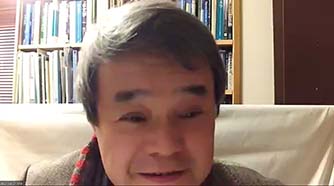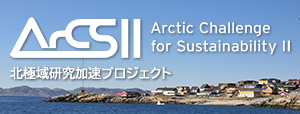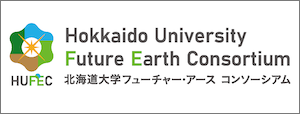ARC Monthly Seminar(12月)を12/20(火)に関係者で開催いたしました。


| 日時 | 2022年12月20日(火)15:00-16:30 |
| 開催形式 | オンライン | 参加者 | 16名 |
| 講師1: 仁木 正義(大学院環境科学院) Presentation Title: Prediction of PM2.5 Concentrations in Urban Areas in Japan Using Machine Learning Abstract: PM2.5 is known to affect ecosystems and climate change, and is also known to have harmful effects on human health through deposition in the lungs. For this reason, PM2.5 has become one of the standards for air pollutants, and research on prediction methods is being conducted worldwide, including Japan. Traditionally, numerical simulation models have been used as a PM2.5 prediction method. Recently, however, a new PM2.5 prediction method using machine learning, an application of artificial intelligence (AI), has been studied as a new PM2.5 prediction method. While machine learning-based PM2.5 prediction has been conducted worldwide, PM2.5 prediction using reanalysis data has rarely been conducted in Japan. Therefore, in this study, we developed and validated a machine learning model that can reproduce past dynamic variations of PM2.5 in urban areas in Japan using reanalysis data, with the aim of developing a model that can predict PM2.5 worldwide. |
|
| 講師2: 知北 和久(北極域研究センター) Presentation Title: Studies on dynamic processes in aquatic environments: Yukon River & Bering Sea, volcanic lakes and coastal lagoons Abstract: I have ever been studying dynamic processes in aquatic environments related to the terrain formation. Here I will introduce dynamic processes in (1) the Yukon River and the Bering Sea, (2) volcanic lakes and (3) coastal lagoons. The academic award, awarded by the Japanese Society of Physical Hydrology (JSPH) this year, is based on these three studies: (1) Dynamic behaviors of the Yukon River sediment plume in the Bering Sea were explored by monitoring river sediment load, observing spatial distributions of water quality and analyzing bottom sediment and satellite images. The new finding is that part of the sediment plume plunges into the bottom layer at the river sediment load more than 2,500 kg/s. (2) Lake Kuttara, Hokkaido, a volcanic lake close to the Noboribetsu hot spring site, occupies the eastern part of the Kuttara Volcano. The climate change in the 21st century made the lake often unfrozen. The lake-ice growth was numerically simulated, and thereby effects of climate change on non-freezing in the future were explored. (3) Five lagoons in the Tokachi coastal region are sporadically open to the Pacific Ocean by breaking the sand bars partially from the overflow of lagoon water. The broken bars are rapidly recovered by the supply of drifted gravel and sand from the ocean. Here, it is discussed how the lagoons interact with the ocean. |
|
※一般参加の募集、資料などの配布は実施しておりませんのでご了承下さい。








